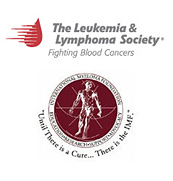- Hazardous Occupations
- Carpenter Health and Safety Hazards
- Chemical Dangers In The Workplace
- Construction Work Health and Safety Hazards
- Electrician Health and Safety Hazards
- Fiberglass Workers and Safety Hazards
- Firefighter Health and Safety Hazards
- Fuel Workers and Hematologic Malignancies
- Laboratory Technician Health and Safety Hazards
- Landscape Worker Health and Safety Hazards
- Painter Health and Safety Hazards
- Pest Controller Health and Safety Hazards
- Plumber Health and Safety Hazards
- Welder Health and Safety Hazards
- Blood Cancers
- Occupational Diseases
- Toxic Chemicals
- Acrylamide
- Benzene
- Benzene and Hematologic Diseases and Cancers
- Benzene Exposure
- Benzene and Acute Lymphocytic Leukemia
- Benzene and Acute Myelogenous Leukimia
- Benzene and Chronic Lymphocytic Leukemia
- Benzene and Chronic Myelogenous Leukemia
- Benzene and Hairy Cell Leukemia
- Benzene and Multiple Myeloma
- Benzene and Myelodysplastic Syndrome
- Benzene and Aplastic Anemia
- Benzene and Myelofibrosis
- Benzene and Thrombocytopenia
- Beryllium
- Diacetyl
- Fiberglass and Styrene
- Flame Retardants
- Flavorings
- Lead Poisoning
- Pesticides
- Solvents
- Resources
- Cancer Organizations
- Government Agencies
- Non-Government Org.
- Air Pollution Organizations
- Animal Rights Organizations
- Environmental Justice Organizations
- Environmental Law Organizations
- Environmental Organizations
- Human Rights Organizations
- Legal Aid Organizations in California
- Occupational Health Organizations
- Public Health Physician Organizations
- Social Justice Organizations
- Water Resources Organizations
- Universities
- Contact Us
Blog Categories
New Harvard Study Confirms Dietary Acrylamide Cancer Risk for Women
- Details
- Category: Health News
- Published on Sunday, 17 April 2011 17:18
![]()
A new study from the Harvard School of Public Health has confirmed the risk of acrylamide in the human diet and the development of endometrial and ovarian cancers.
The researchers assessed acrylamide intake among 88,672 women in the Nurses' Health Study using food frequency questionnaires administered every four years. Between 1980 and 2006 they identified 6301 cases of invasive breast cancer, 484 cases of invasive endometrial adenocarcinoma, and 416 cases of epithelial ovarian cancer. They used Cox proportional hazards models to study the association between acrylamide and cancer risk. They found no association between acrylamide intake and breast cancer. However, they did find an increased risk of endometrial cancer among high acrylamide consumers that was statistically significant. They also observed an increased risk for ovarian cancer that was not statistically significant, with a significantly increased risk for serous tumors. These associations did not differ by smoking status.
The researchers noted that their study was the second prospective epidemiologic study to report positive associations with endometrial and ovarian cancers, thereby confirming the previously reported increased risk of dietary acrylamide exposure and these cancers among women who consume high concentrations of acrylamide in their diet.
The study is notable not only for its findings of cancer risks among women from dietary acrylamide exposure, but also because the researchers who conducted the study had previously publicly disclaimed human cancer risk from dietary acrylamide consumption.
The citation of the study is: Wilson, K.M., et al., “A prospective study of dietary acrylamide intake and the risk of breast, endometrial, and ovarian cancers,” Cancer Epidemiol. Biomarkers Prev. 2010 Aug 6; [Epub ahead of print].




